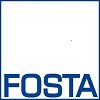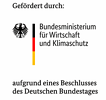Dimensioning and design of hollow section connections made of higher-strength steels using the example of N-joints
- contact:
- funding:
FOSTA, AiF
- Partner:
TU Dresden, Institut für Stahl- und Holzbau
TU Chemnitz, Institut Füge- und Montagetechnik
- startdate:
2020 - 2023

Eurocode 3 is currently under revision. Part 1-1 will regulate steels up to S700, Part 1-12 will regulate steels above S700 to S960. For hollow section nodes made of high-strength steels, the scientific and technical basis for a satisfactory normative regulation is currently missing. The currently valid Part 1-12 contains a general reduction of the joint load bearing capacities to 80 % of the values from the design formulae for normal-strength steels. The draft of the new Part 1-8 (prEN1993-1-8) additionally provides a limitation of the attachable strength which, depending on the yield strength, is reduced to up to 80 % of the tensile strength of the steel. There is no sufficient basis for both regulations. The aim of the research project is to create fundamentals that will lead to a significant improvement in the technical rules for the design and execution of hollow section joints made of high-strength steels.
The following subsections are planned:
- Experimental and numerical investigation using the example of N-joints in large-scale tests on Q- and TM-steels in the strength range S500 to S960.
- Tests on T-joints welded on one side to investigate the influence of material combinations including filler metals, weld preparations and production parameters on the load-bearing behaviour. Development of optimized connection details of filler rods to belts.
- Optimisation of MSG welding of HSS hollow section joints to simplify the execution rules.
- Development of normative rules for dimensioning and execution including welding production.
The parallel development of design and execution rules opens up the possibility of improving the technical rules for both areas. Engineering offices and technical departments of steel construction companies, manufacturing companies, steel producers, manufacturers of welding consumables and developers of automation benefit from this.
Förderhinweis
Das IGF-Vorhaben „21498 BG / 1“, IGF-Projekt "Bemessung und Ausführung von Hohlprofilanschlüssen aus höherfesten Stählen am Beispiel von N-Knoten", FOSTA-Projekt P1453 der Forschungsvereinigung Stahlanwendung e. V. (FOSTA), Sohnstraße 65, 40237 Düsseldorf wird über die AiF im Rahmen des Programms zur Förderung der industriellen Gemeinschaftsforschung (IGF) vom Bundesministerium für Wirtschaft und Klimaschutz aufgrund eines Beschlusses des Deutschen Bundestages gefördert.



